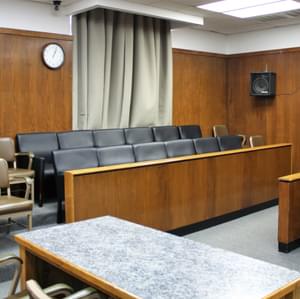
Four years after the racially motivated murders of nine African-American parishioners at the historic Emanuel African Methodist Episcopal Church in Charleston, South Carolina on June 17, 2015, a new book by Charleston Post and Courier reporter Jennifer Berry Hawes explores the aftermath of the killings and the extraordinary narrative of grace and forgiveness it produced. As a reporter for the Post and Courier, Hawes covered the story of white supremacist Dylann Roof’s murder of the churchgoers and the court proceedings that led to his death sentence. In Grace Will Lead Us Home, released on June 4, 2019, Hawes examines the continuing impact of the murders on the victims’ families, the Charleston community, and the nation. Her book describes the murders within the historical context of race relations in South Carolina, including Charleston’s history of slavery and Jim Crow, and the debates spawned by the shooting about issues such as the display of the Confederate flag. Through interviews with survivors and survivors and victims’ family members, she explores the role of forgiveness in the AME Church and the family divisions that resulted from the murders. She also addresses the ways in which Roof’s capital trial further traumatized those affected by the shooting.
Hawes was part of the Post and Courier reporting team that won the Pulitzer Prize and the Polk Award for its 2014 investigative series on domestic violence, Till Death Do Us Part, and was a 2019 Pulitzer finalist for a series of articles, An Undying Mystery, on the racial injustice that led to South Carolina’s wrongful execution of 14-year-old George Stinney for the deaths of two white girls. In Grace Will Lead Me Home, she “wanted to provide people with a more complex, better understanding of what happened in Charleston.” “The narrative of forgiveness” that emerged from the statements by victims’ family members at Roof’s bond hearing was “an absolutely beautiful, inspiring moment [that] came to define this tragedy,” she said. But in the months and years that followed, “the lives of the people who were most directly affected were changed in so many ways.” Interviewed by NPR’s Joshua Johnson, Hawes described the family members’ statements of forgiveness less as sympathy for Roof than as healing for them. “It’s to keep hate from corroding the soul. It’s to keep me from drowning in malice. … The whole idea was that this is something I can do for myself so that I can move on as a human being. And for people who are Christians, it’s to move toward God and to move forward in their faith,” she said.
In its review of Grace Will Lead Me Home, The New York Times says, Hawes’s effort “to write as comprehensive an account as possible [of the impact of the killings] largely succeeds — if sacrificing, invariably, some depth for breadth. Still, she lands the book with moral force and great feeling, writing about the soil that could produce both the Emanuel Nine and a Dylann Roof.” Kirkus Reviews described the book as “[a]t once horrifying and inspiring, engaging and thought-provoking” and called it “a definitive must-read about the Charleston tragedy.”
The Charleston tragedy and writing the book caused Hawes to rethink how mass violence affects society. In an interview with MacMillan Library, she said: “I have since come to think of mass shootings as akin to tossing a rock into a pond. The initial impact disrupts the surface in obvious ways. But then ripple upon ripple of disruption spreads from that impact. This is what happens after these events, and happened here, from divisions among families and the church to divisions within families grappling with so much pain.” She has noticed hopeful developments since the shooting, such as joint Bible studies that bring together people of different races and police efforts to engage with the community. On the other hand, she says, “our legislators have failed so far to pass meaningful policy changes needed to address the enormous racial disparities that persist here in everything from education to housing to healthcare.” As a result, “the wounds of slavery and Jim Crow remain unhealed.”
(Jennifer Berry Hawes, Grace Will Lead Us Home, St. Martin’s Press, 2019; Parul Sehgal, ‘Grace Will Lead Us Home,’ an Intimate Look at Forgiveness, Anger and Trauma After the Charleston Massacre, The New York Times, May 21, 2019; Grace Will Lead Us Home, Kirkus Review, March 3, 2019; An Interview With Jennifer Berry Hawes, MacMillan Library, March 8, 2019; Joshua Johnson interviews Jennifer Berry Hawes and Pastor William H. Lamar IV, Forgiveness After A Massacre In Charleston, 1A, June 4, 2019 (audio).) See Books, Victims, Race, and Religion.


